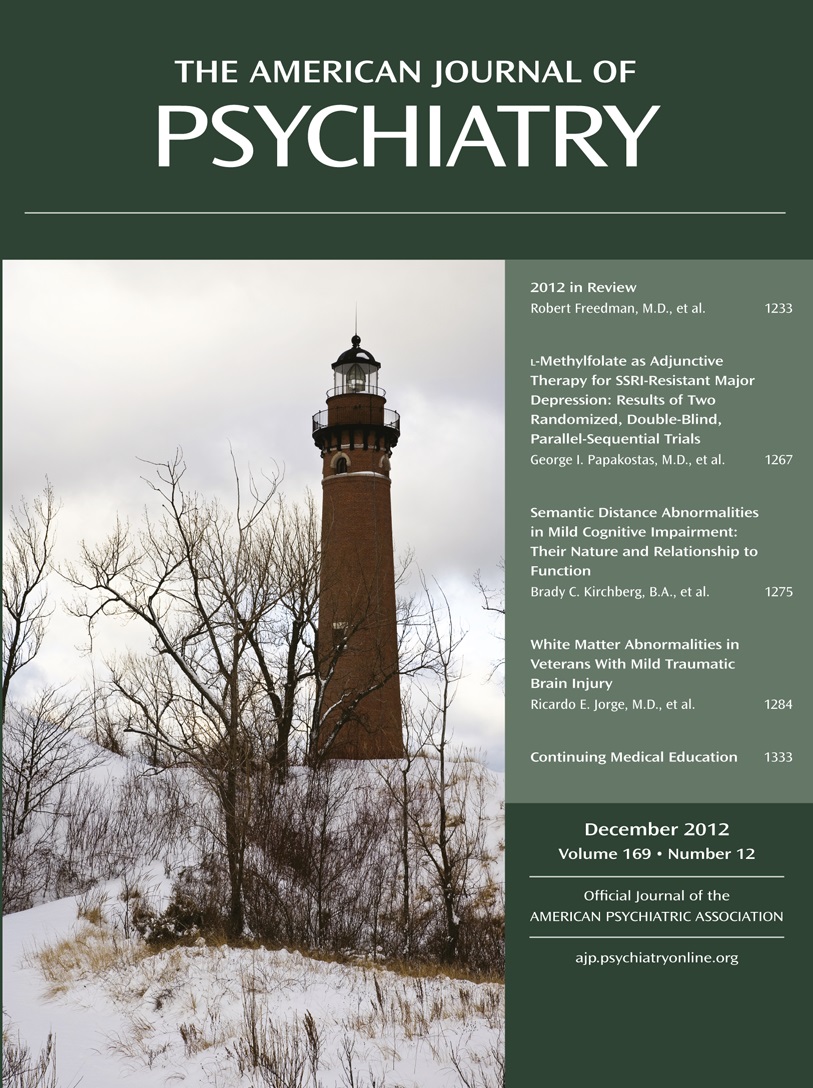Response to Warner Letter
To the Editor: The letter from Dr. Warner concerning our article on the KCNH2 3.1 isoform and antipsychotic response in patients with schizophrenia (1) raises a very interesting question: Do patients with QTc prolongation respond differently (better or worse?) to antipsychotic drugs, and do they have risk-associated genotypes in KCNH2? Our study results show that risk-associated KCNH2 genotypes, which also predict greater expression in the brain of the novel, brain-selective KCNH2 3.1 isoform, responded better to antipsychotic drugs in both the Clinical Antipsychotic Trials of Intervention Effectiveness (CATIE) outpatient study and in our NIMH inpatient placebo-controlled trial. As noted by Dr. Warner, the frequency of potentially clinically significant QTc prolongation in the CATIE study was too rare for us to test her question based on this qualitative untoward outcome. However, we could address the question of whether the KCNH2 risk-associated genotypes that predict better treatment response are associated with prolongation of the QTc interval measured on clinical ECGs, which are in the CATIE database. Among the 364 patients used in our treatment response data analysis, 340 had at least one measure of the QTc interval during phase 1/1A of the CATIE study (Table 1). We performed a general linear model analysis while controlling for sex, age, drug clearance, years of antipsychotic treatment, duration of disease, and mean chlorpromazine equivalents from change in QTc based on the last available ECG compared with baseline. We found no significant association of any of the three single-nucleotide polymorphisms (SNPs) in KCNH2 with change in QTc (Table 2). We also tested possible interactions of these SNPs with specific treatments, and again no significant interactions were found between treatment and any of the SNPs on QTc duration. While this sample is clearly underpowered to address this question more conclusively, the negative results are consistent with the evidence from earlier research (2)—the KCNH2 3.1 isoform associated with genotypes that predict better treatment response is a relatively brain-specific potassium channel with negligible expression in the heart.
| Genotype | N | Mean | SD | Minimum | Maximum |
|---|---|---|---|---|---|
| CC | 139 | 1.97 | 26.28 | –62 | 62 |
| TC | 141 | 0.61 | 29.28 | –80 | 119 |
| TT | 51 | 2.28 | 25.63 | –53 | 63 |
| Source | df | F | p |
|---|---|---|---|
| rs3800779 | 2 | 0.49 | 0.61 |
| rs748693 | 2 | 0.64 | 0.53 |
| rs1036145 | 2 | 0.03 | 0.97 |
In conclusion, recently identified schizophrenia risk-associated SNPs in KCNH2 that affect the processing of a brain-specific 3.1 isoform with unique physiologic properties do not appear to affect hERG1 potassium channel function in the heart and are not likely to be related to antipsychotic drug-induced QTc prolongation. Dr. Warner’s prescient question about whether the 3.1 isoform might be a target for the development of new antipsychotic agents is the subject of ongoing research.
1 : Genetic variation in KCNH2 associated with expression in the brain of a unique hERG isoform modulates treatment response in patients with schizophrenia. Am J Psychiatry 2012; 169:725–734Link, Google Scholar
2 : A primate-specific, brain isoform of KCNH2 affects cortical physiology, cognition, neuronal repolarization, and risk of schizophrenia. Nat Med 2009; 15:509–518Crossref, Medline, Google Scholar



